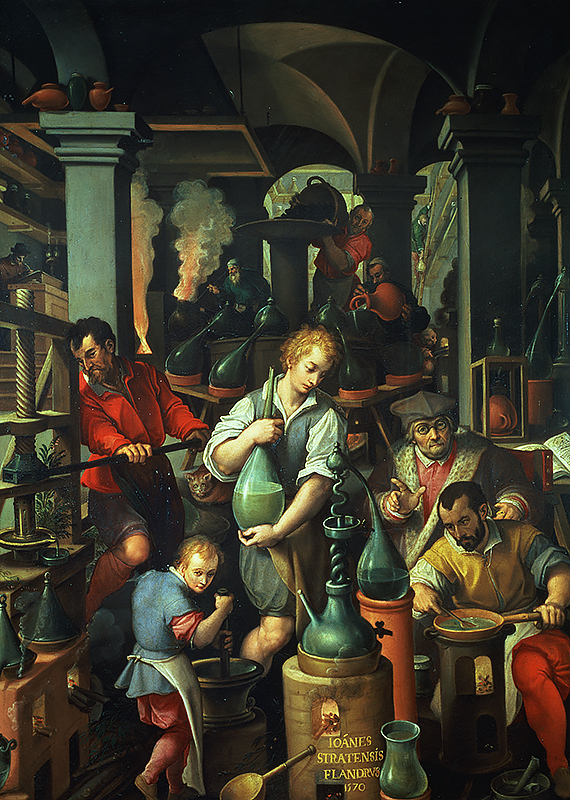Alchemy, << AL kuh mee, >> is a way of studying and experimenting with matter that includes elements of chemistry, philosophy, and spirituality. Much of alchemy deals with transforming natural materials into useful or valuable substances. Before the development of modern chemistry, alchemists sought to understand the changes they saw in metals and other materials that were exposed to fire and acids. People still practice alchemy today, but modern alchemists primarily seek spiritual transformation.

Alchemy developed from such activities as coloring and alloying (mixing) metals and making gems. Some alchemists tried to transform cheaper metals into silver or gold, a process called transmutation. Some early alchemists produced counterfeit gold, silver, and precious stones. Such activities may have given alchemy its reputation for deceptive practices.
Alchemists and metalsmiths used similar techniques. But alchemists often saw themselves as trying to speed up or perfect the workings of nature. Some alchemists searched for the philosopher’s stone, which they thought could greatly speed up the transmutation process. Many alchemists believed that they could perfect and purify materials only if they themselves were spiritually perfected and purified in the process.
Ancient societies in Egypt, India, and China practiced alchemy. Egyptian writers later produced a number of written works on alchemy from about 200 B.C. to A.D. 200. Arab scholars built on these works from the 640’s to about 1200. Alchemy reached Europe around 1100 and flourished, especially in noble courts. At its peak in the 1600’s, a number of famous scientists practiced alchemy, including Robert Boyle of Ireland and Isaac Newton of England. In the late 1700’s, many learned people began to ridicule alchemy as pseudoscientific (falsely claiming scientific merit) and deceptive.
Alchemists based their ideas on the ancient Greek belief that matter consists of four elements: (1) water, (2) earth, (3) air, and (4) fire. Alchemists also thought that all metals could be reduced to a single type of matter and thus transformed into one another. In the 700’s, Arab alchemists thought that the qualities of all metals could be explained in terms of sulfur, which burns in hot fires, and mercury, which is liquid at room temperature and has a metallic shine. In the early 1500’s, the Swiss physician Philippus Paracelsus thought that sulfur, mercury, and salt gave metals their distinctive qualities.
Alchemy played a key role in the development of modern science. The theories of alchemy gave rise to modern chemical theory. Modern experimental techniques developed from such alchemical practices as studying nature in a laboratory; observing experiments and keeping records; and measuring the ingredients and products of chemical reactions.
